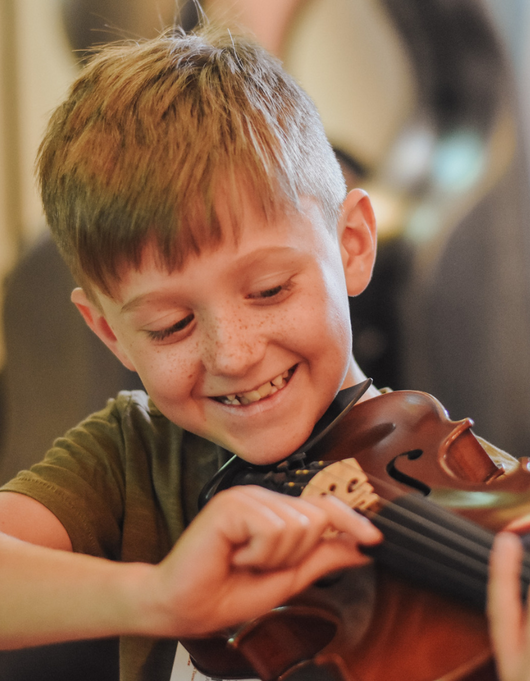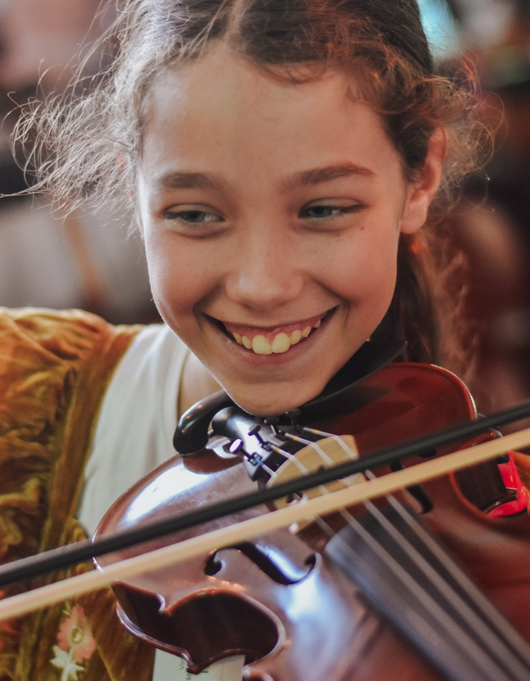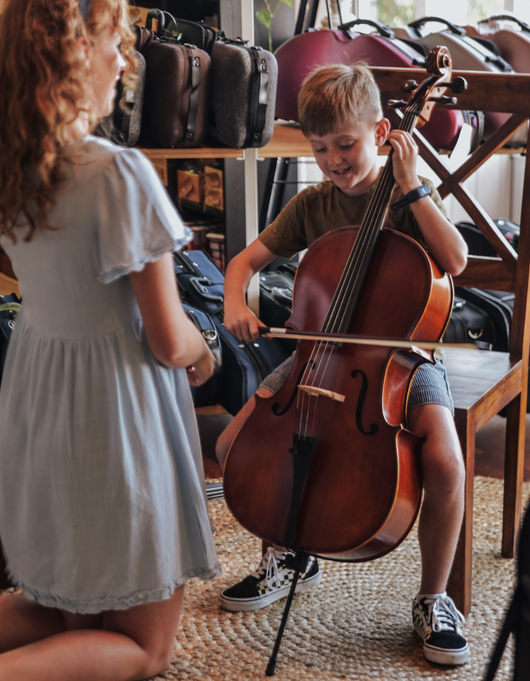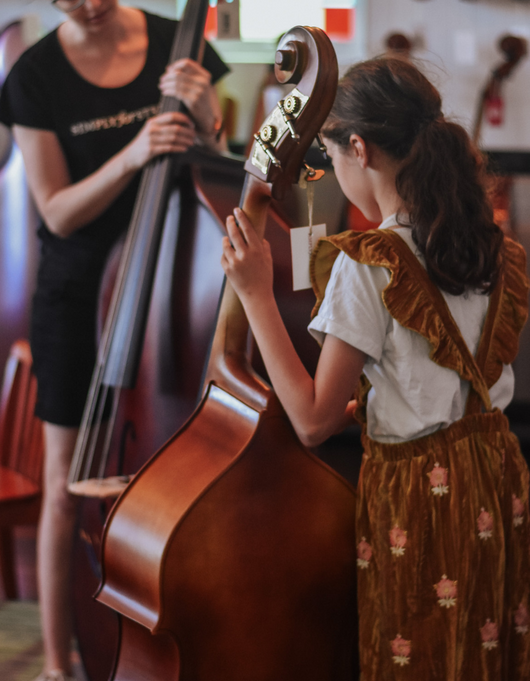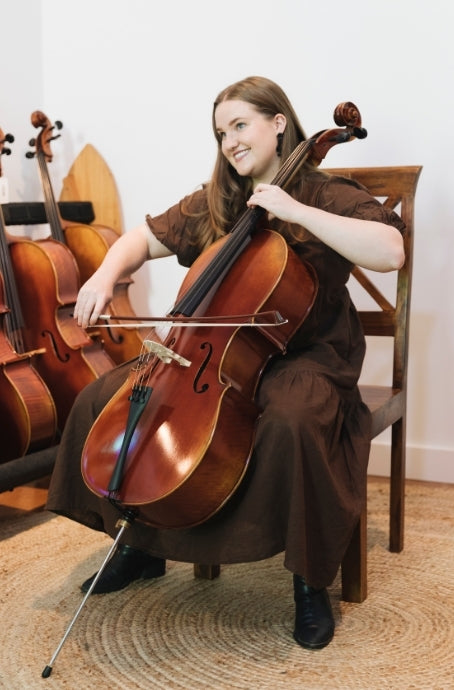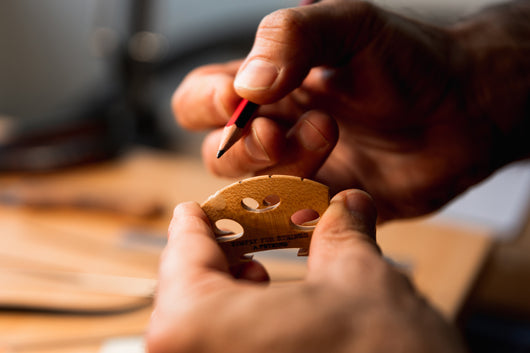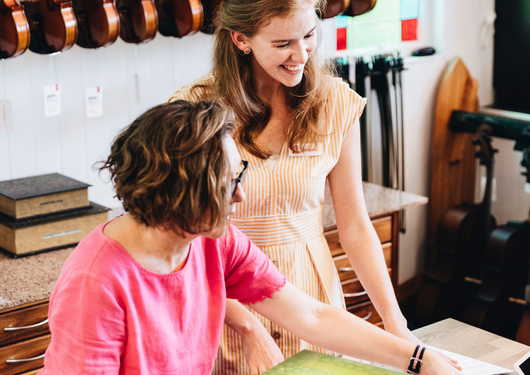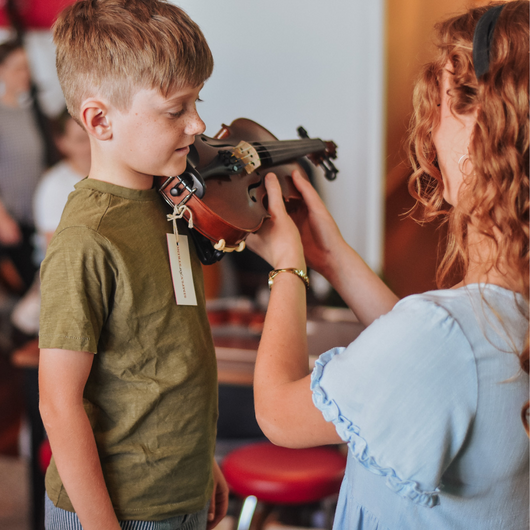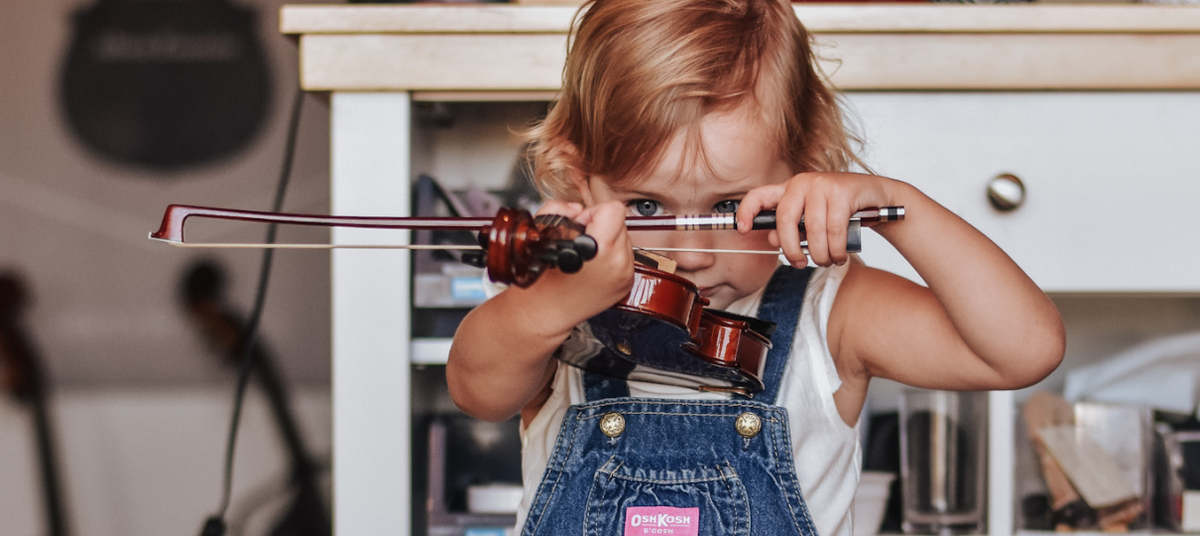This is a question we hear from parents a lot! Unfortunately, knowing when your child should start learning to play the violin isn’t based on an exact science. There are a number of factors to consider and, as a parent, you’re best placed to make that decision.
You might be concerned that if your child starts out too young, they won’t get the most out of formal training. Parents often ask us questions like:
- “If they start too young, can they develop bad habits that will affect their playing in the long term?”
- “Have they developed the fine motor skills yet to learn such a complex instrument?”
- “Will they even be able to focus long enough to learn to play properly?”
These are all valid questions, and their answer will differ from child to child, but you shouldn’t be deterred too quickly. There are a few options you may consider trying from very early on in your child’s life to help encourage their love for music and get them on track to start the violin.
Baby/Toddler Music Classes (3 months+)
These classes involve children as young as 3-6 months and their parents and use music as a way to promote early childhood development. The aim is to help cultivate a love of music within the child from a very early age and provide a very basic level of musical understanding. Some prenatal classes are even offered now, using music as a way to soothe the baby within the womb (they can start to hear from around 16 weeks!)
The Suzuki Method (ages 3 and up)
The famous Suzuki method of teaching is offered to children from as young as three years old. It is based on the ‘mother tongue’ method of learning, where music is taught as a language rather than in isolation on a particular instrument. Much in the way that young children learn their native language (through listening, imitation and repetition), the Suzuki method gives children the foundations to start learning any instrument before they’ve even picked it up.
School Music Curriculum (starts at age 7-8)
Most school music curriculums start at around grade 3 and many parents often wait until their child has started learning an instrument at school before sending them to formal lessons. This gives them the opportunity to try playing an instrument to see whether or not they enjoy it before committing to long-term tuition.
Private Lessons (can start at any age, depends on the teacher)
Many parents will start their child in private music lessons before anything else. There are certainly benefits to this: the child receives one-on-one tuition from a professional musician, with specific focus on technique and musical output. Students can start private lessons as young as four or five, however talk to a private teacher in your area first about what your child will learn so you can make an informed decision. Lessons can be quite expensive, so you may consider group lessons as an alternative.
In order to give your child the best start to their musical education, there are some key factors you should also keep in mind:
- If you’re worried about their developing bad habits, start with a private teacher. The teacher will have enough knowledge and experience to catch out any bad technique before it becomes ingrained in their muscle memory (making it really difficult to un-learn).
- As a parent, it’s really important that you’re involved. This may include you attending lessons with them, watching them practice and providing feedback, or even learning the instrument at the same time as them!
- Access to teachers is important: you need to find the right teacher who works well with your child. Don’t be afraid to stop if they’re not happy and try someone else.
- They should have access to an interesting and diverse repertoire of music. They don’t just have to learn classical pieces; they may want to try folk, fiddle, or Irish music as well so as not to be put off. There is also a lot of sheet music available for modern pop songs on violin, too!
- The fundamentals are important! They must focus on technique when first starting out. Kids may feel bogged down by this to begin with, but it’s so important for them to get a handle on if they’re going to be able to progress to more advanced playing in the future.
- And most importantly, your encouragement is essential. Your child needs your love, praise and positive feedback in order to grow their love for playing the violin. Watching them practice, attending their concerts and giving them positive reinforcement will make more difference than you might expect!
Simply for Strings is proud to support the Australian Strings’ Association (AUSTA). If you’re looking for a violin teacher, you can use their online directory to find one in your area.
You can find more information about the Suzuki Method and find your local chapter here.
If you’re ready to buy your child their first violin, you might want to take a look through our Complete Guide to Buying a Beginners Violin.



